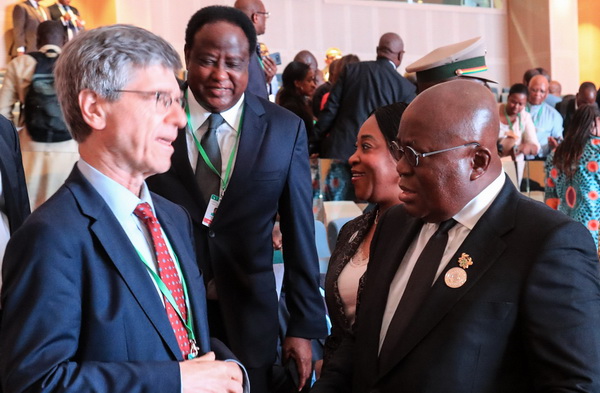
Amidu’s appointment should end witch-hunting cries – Akufo-Addo
President Nana Addo Dankwa Akufo-Addo says the appointment of Mr. Martin Amidu as Ghana’s first Special Prosecutor will deny persons who will be investigated and prosecuted for engaging in acts of corruption, the often-cited refrain of witch-hunting.
According to President Akufo-Addo, “we have a particular problem in Ghana which is that, every time a prosecution is mounted against a high ranking official, you hear the cry witch-hunting. It has become a way of protest for senior political figures.”
As a result, the President explained that “we have now had to devise particular responses and mechanisms (to the cry of witch-hunting). We have established an Office of Special Prosecutor. The Special Prosecutor is a permanent official who is independent of the Executive, who will hold all officials, past and present, accountable for their stewardship.”
President Akufo-Addo made this known last Sundaywhen he made an intervention at the plenary session of the 31st African Union Summit, which is being held on the theme “Winning the Fight against Corruption: A Sustainable path to Africa’s Transformation”, in Nouakchott, Mauritania.
Reiterating the commitment of his government to ensuring that “equality before the law means exactly just that, equality before the law”, President Akufo-Addo was unequivocal that regardless of one’s status in society, “when we get into problems of wrongdoing, we should face the consequences”.
Describing the Ghana’s first Special Prosecutor, Mr. Martin Amidu, as having “a high reputation on his stance on corruption and (being) a figure of integrity”, the President noted that Mr Amidu was a former Attorney General in the government of the 3rd President of the 4th Republic, the late John Evans Atta-Mills.
“If he (Martin Amidu) then puts you in his gaze for an act of wrongdoing, that charge of witch-hunting will no longer be available. We believe that, that is a very important step, which will make sure that the principle of equality before the law is made meaningful.“
